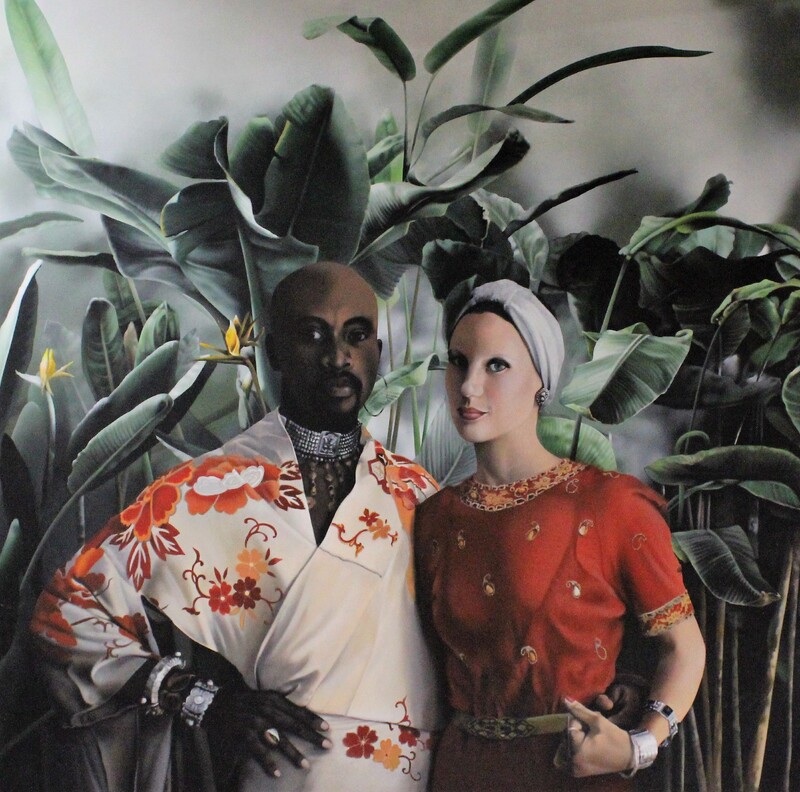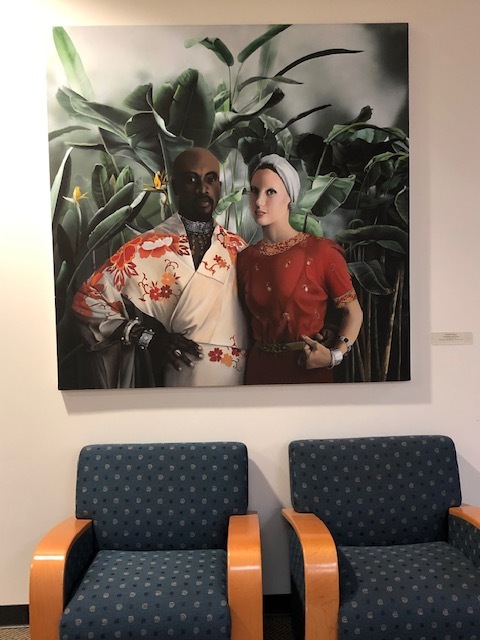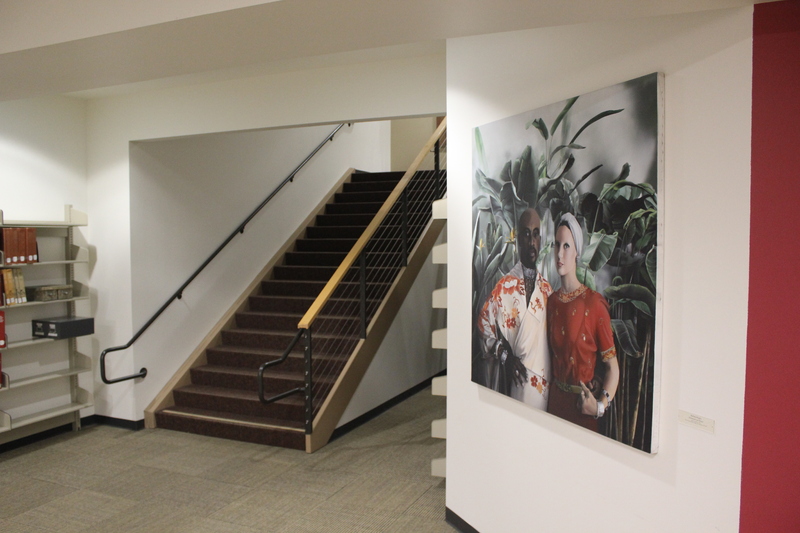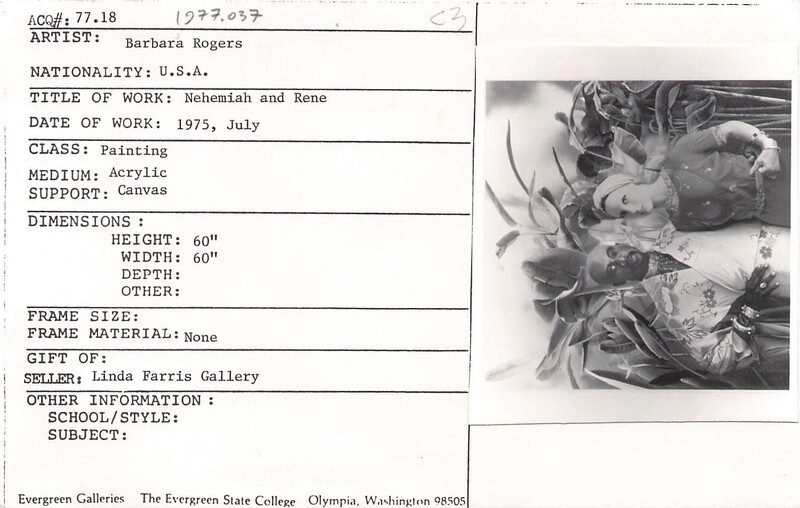-
Title
-
Nehemiah and Renee
-
Creator
-
Barbara Rogers
-
Artist ID
-
56
-
Date of Work
-
July 1975
-
Description
-
Two people, one in white and one in red, surrounded by banana trees.
-
Category of Media
-
Painting/mixed media on canvas/board/etc
-
Media
-
Acrylic on canvas
-
Accession Number
-
1977.037
-
Location
-
Display: Library, Underground, near staircase
-
Date Acquired
-
1977
-
Acquisition Method
-
Purchase
-
Dimensions of Work
-
60" x 60"
-
Frame Type
-
None
-
Donor ID
-
133
-
Condition Statement
-
Sept 2022: Prominent white accretions center right and upper left. Abrasion bottom left edge. Moderate loss bottom left at elbow. Bloom on red shirt at lower right. Loss upper left edge.
-
Artist Bio
-
Barbara Rogers came of age as an artist in the 1970s in California where she forged a unique photorealist style. After she experienced a powerful hurricane in Hawaii in the 1980s, her work took a dramatic turn that blurred the boundaries between abstraction, realism, and ornamentation.
Source: Art Collection Archives
A study for this painting is in the collection of the San Francisco Museum of Modern Art, entitled: "Nehemiah and Renee with Orchid."
https://www.sfmoma.org/artwork/77.81/
"Nehemiah" pictured in this painting appears to be the same model in Judy Dater's photographic portrait "Nehemiah," (1975) which is also in the Evergreen Art Collection.
-
Abstract
-
"Why do I paint botanical forms? They enable me to find a variety of more interesting forms, ideas, and structures than I could dream up by myself. But I look for ideas in nature that conform to the painting ideas I have from years of painting and teaching. Still, I don't place too much value on subject matter. My lack of involvement with it enables me to concentrate on the painting. And my painting ideas come as much from art, travel and studying diverse cultures as from nature. I often look at the images of Matisse, Bosch, Hans Hofmann, Southern Song dynasty art and the gorgeous embellishments on the wood and stones in Korean Buddhist temple architecture.
My paintings are abstract in the sense that they depart from representational accuracy. I often select and then exaggerate or simplify botanical forms that are suggested in the world around me in my garden in Arizona.
The most recent combined encaustic and oil paintings continue my exploration of those emblems of the microcosm that I invent or discover. I still try to investigate various systems of order versus what at first appears to be nature's chaos. My working process on these current paintings involves continual changes in texture, form, and color that develop during each studio work session until the piece is realized, insisting on its own eccentric presence in the world.
Every painting I begin makes its own demands. The wonder of this dialogue with paint, color form and space is what keeps me excited about working. My memories hold all that I have seen, heard and touched in this world. More time for travel and working in my own garden here in Tucson keep new ideas arriving constantly! All the colors, shapes and forms I have experienced are stored and ready to be drawn upon when I am working. When I paint, I am an explorer in the terrain of my own psyche discovering what will emerge as the work develops.
I am grateful to the American painter, Philip Pearlstein, for the thoughts behind my statement.
Pearlstein's knowledge of himself as a painter at the end of the Fifties nailed down the essence of how I feel now. When Pearlstein expressed these thoughts I was still a very young art student at Ohio State University."
Source: Art Collection Archives







